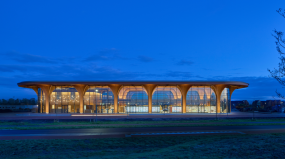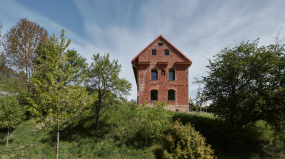
The startup accelerator to change and improve urban life.
Urban-X is the name of the New York incubator which identifies and invests on the most interesting startups connected with urban innovation. The project is supported by MINI, the British automotive marque owned by the BMW group, in cooperation with the venture capital fund Urban.Us.
The goal of Urban-X is to select and promote startups with a strong impact on cities, offering a 20-week incubator program to develop the product, create networks of partners and clients, provide specific training through experts in the field in preparation for fundraising. In fact, after the initial funding of $100,000 for each business, the process includes the presence of six experts who will help the startup in the development of the idea, while leaving entrepreneurs free to make their own decisions – as highlighted in the program of the project.
As to the numbers of this operation, to this day over 50 startups have been incubated, with 100+ cities involved and 2,000+ “mentors” who take part in the project through training activities to support the ideas which have been selected. This is thanks to the fact that the technical and financial support and the development of the product and brand are combined with tutoring and networking activities aimed at making these projects feasible, testing them in 100 cities over the next five years.
The main goal the URBAN-X program aims to achieve is having a positive impact on life in cities, identifying and supporting valid solutions and scalable activities across all sectors: transport and mobility, real estate, construction, energy, water, food, waste, government services and health.
As stated by Robyn Beavers, co-founder of BluePrint Power (startup which turns buildings into smart power plants), from the perspective of URBAN-X cities become elements which “anticipate innovation”, with the potential and power to influence future development.
What's the aim? Identifying the best startups that are working on urban innovation
This way of “re-imagining” city life implies using technology and a design which focuses on man and human needs. In particular, the MINI incubator identifies specific intervention sectors: from purely urban topics such as living and mobility to environmental ones (managing water, food and waste), the built environment and the real estate market, up to topics connected to energy efficiency and health.
This includes many different innovation projects, for example Citiesense creates maps which provide information on new permits, sales and property changes in urban areas, guiding real estate investors and local stakeholders in finding the best possible solutions for urban development.
The startup Envairo offers a “building responsive” strategy, where buildings react to stimuli from users with the correct and instantaneous balancing of air flows in the rooms based on the number of people who are actually using the space.
Avvir offers instead real-time information on buildings by providing detailed scans of the different construction phases and a constant complete picture of the progress which allows to make the right choices during the building phase.
A similar goal, with a different perspective, for Versatile Natures – an Internet of Things company – which develops sensors and analysis tools to intervene on building construction in order to monitor one of its most complexes phases, the construction site. The start-up installs sensors on cranes allowing vision of the entire construction site and providing real-time data to the different people in charge of construction, thus enhancing production and safety at once.

There are then businesses which deal with mobility, such as ClearRoad, which offers government agencies an innovative solution for toll road payment, thanks to a small device connected to our cars or smartphones’ GPS which provides data on the actual use of roads and takes care of payments, without the need for traditional infrastructure. Another interesting idea on road infrastructure is the one suggested by RoadBotics, which uses the method of machine learning to monitor roadways, in this case cars collect data on the pavement (its state and any problems) to prevent or provide information on interventions to carry out.
What emerges is the constant search for innovation and its application in the urban context, a search which is more and more the focus of large companies, like in the case of Amazon and its interest in the building industry which we talked about (go to the article). This is also true for MINI with the URBAN-X program, which aims at broadening its horizon looking for new solutions, collecting and interpreting the wide world of big data to produce applications for the market: prediction tools of the future with the goal of changing people’s lives.





